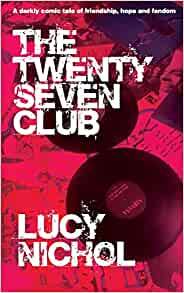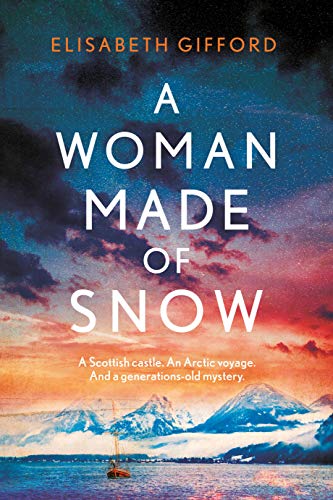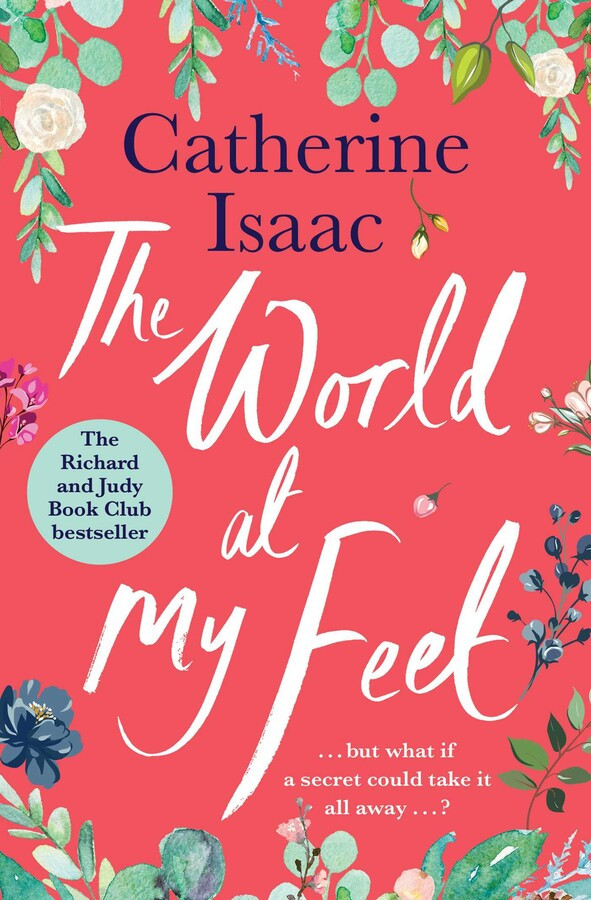4. Is there anything about the process of publishing a book that surprised you?
I’m not a planner. I don’t think it’s a preference, more a lack of discipline and patience! Although I do love character exploration first and foremost – learning what my characters might look like, what little habits they might have, what they might eat for their tea, etc. I’ve even created playlists for them and put together images of what their houses might look like by trawling Right Move! But in terms of what they do and where they find themselves, I have an idea about the big challenges they face and what is important to them, but I tend to work out how to overcome these challenges as I get to know them better through the writing process.

This is a very tough question because for me, my favourite is always the song I’m listening to at the time, the chocolate bar I’m eating at the time or the TV show I’m watching at the time. But if I had to choose, I think I would need something by Joanne Harris – purely because of the escapism and magic of her books. Holy Fools is a particular favourite. So atmospheric. I might pick it up again soon, in fact.
I’m a freelance PR consultant – which involves mainly…writing! I do a lot of work with mental health charities as part of this, in fact they probably make up about 75% of my clients! But outside of work, I love gardening, walking, cats, looking after our hens – anyone who reads the book will see I’m nowhere near as cool as Emma! I love a quiet life. Give me a takeaway pizza and The Sopranos or Vikings on the telly and I’m over the moon.
2. What inspired the book?
6. If you could only read one book for the rest of your life which book would it be?
The Twenty Seven Club is about 26 year old Emma, a rock music fan from Hull who finds herself brimming with anxiety after she learns of the death of Kurt Cobain in April 1994. She becomes obsessed with the fact that so many rock stars have died aged 27 and wonders what it is about the age that seems to lead to an early grave.
1. Tell us a little about The Twenty Seven Club.
About the Book
Why have so many legendary musicians gone aged 27? Is there a link between the members of the so-called Twenty Seven Club? Is this why her mum had an affair and left them? And could Emma be about to join The Twenty Seven Club too?
Lucy Nichol is the author of The 27 Club which was published on 19 January 2021.
There are so many amazing people who we have lost at the age of 27 – in addition to Kurt Cobain we lost Amy Winehouse, Janis Joplin, Jimi Hendrix…to name but a few. And I was interested in the way the headlines surrounding their deaths became more about ‘The 27 Club’ myth and, often, their drug-taking or boozing, rather than the people themselves. It made me realise that, while we might know and appreciate their art, can we really claim to know the person behind the headlines?
5. What do you do when you aren’t writing? What do you do to relax and get away from it all?
Emma, a working-class rock music fan from Hull, with a penchant for a flaming Drambuie and a line of coke with her best mate Dave down The Angel, is troubled. Trev, her whippet, has IBS, and her job ordering bathroom supplies at the local caravan company is far from challenging. So when her dad, Tel, informs her that her music idol, Kurt Cobain has killed himself aged 27, Emma is consumed with anxiety.
Lucy kindly answered a few of my questions.
Emma is hurtling towards her 27th birthday, riddled with anxiety that her idols Joplin, Hendrix and Morrison all died aged 27, and now Kurt Cobain has gone too. Will Emma be next to join The Twenty Seven Club?
The cost and the amount of expertise needed! This is the first time I have independently published – my first book was published by Trigger in 2018. And the detail that you need – that I am in fact still learning about even though the book is now out – to independently publish is immense! I didn’t realise I needed so much help from the outset and therefore blew the budget as I realised I needed marketing advice (thanks Sam Missingham!), typesetting and publishing advice (thanks Caroline Goldsmith!), design and trailer animation (thanks Kirk Teasdale and Simon Crook!) and even more proofreading and editing than the huge amount that myself and my agent, Jo, had already done! I’m quite lucky that another author, the lovely Stephie Chapman, who agreed to read an advanced copy of my book pointed out a last minute error that I’d made when changing the intro. I somehow managed to drown Brian Wilson of the Beach Boys in a swimming pool – when it was in fact Brian Jones of the Rolling Stones who sadly passed away in the pool. So I think, all in all, the biggest surprise was the complexity of the process, and the huge team that you need to work with to make your book and your marketing the best it can be!
I would love to talk about Mark Keds – the late singer of Deadcuts and Senseless Things who sadly passed away aged 50 in January. Senseless Things feature in the book (although I wont say how or why) with little fictional cameos, because they are the band that totally capture the essence of my youth through their pop kid punk. I was so upset to hear about Mark Keds’ death, and my husband said he’d never seen me so upset over the death of a celebrity or artist before. He said I went into a kind of fan girl grief – which is fair, I’d say. I never met him, and, like all the other musicians I talk about in the book, I don’t know Mark Keds the person, but as a fan, I still feel incredibly sad that he has left us and that we’ll never get the chance to hear him sing or play or write again. So I’d love to encourage anyone reading this who doesn’t already know them to check out Senseless Things or Deadcuts. RIP Mark Keds.
Since the age of 14 or 15 (which was around 1993 for me – one year before the book is set), my life was consumed by anxiety and panic attacks. But I also had this full time love of music. So bringing together mental health and music just came naturally, and builds on my non fiction writing (in my first book and in the media) about mental health and stigma in particular. I love a bit of nostalgia too and the 90s seems to be so big right now!
I think there are parallels with how we think about our own mental health as well. Many rock stars who use drugs or alcohol may actually be self-medicating for all we know and yet the media, especially back in the 90s can be quick to assume it’s just rock star partying – a lifestyle choice. So these behaviours may be more a symptom than a cause. It’s the same with other things we sometimes experience like palpitations or obsessive thinking about our health, for example, which may be a symptom of an anxiety disorder, or trauma. Often, if we look beyond the headlines we tell ourselves (i.e. I’m having palpitations, I can’t stop thinking I’ve got cancer), we can understand more about the cause, make more sense of how we’re feeling and learn to manage it better. And that’s what I’ve tried to help my character, Emma, do.
3. Are you a plan, plan, plan writer or do you sit down and see where the words take you?
We follow her on a journey of self discovery through pubs, clubs and music, family break ups, friendships, love, too much booze, and a whole host of cringe-making and (hopefully) hilarious blunders. It’s full of 90s nostalgia too – so expect Sun-In, mix tapes, black cherry lipstick and Dr Martens.
7. I like to end my Q&As with the same question so here we go. During all the Q&As and interviews you’ve done what question have you not been asked that you wish had been asked – and what’s the answer?
It’s 1994. The music industry is mourning Kurt Cobain, Right Said Fred have re-emerged as an ‘ironic’ pop act and John Major is the country’s prime minister. Nothing is as it should be.







